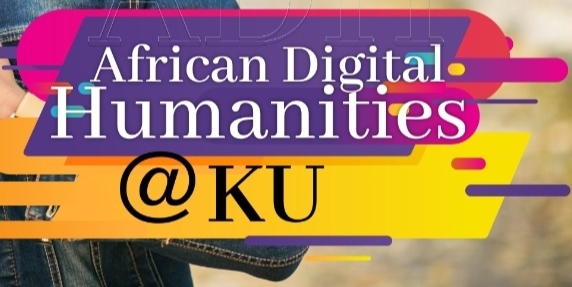Reflections on African DH
#AfricanDH2020 and the Promise of An African Digital Humanities

As more Africa-based scholars embrace the digital humanaities, we are presented with huge opportunities, as Roopika Risam writes in New Digital Worlds, to expand the digital cultural record, bringing postcolonial cultural productions in Africa in greater and more visible conversation with the affordances of digital media. This is why the symposium on African digital storytelling at the University of Kansas is important.
While the event promises to explore what digital storytelling might look like in the context of an African cultural space with a robust oral storytelling tradition, what makes it unique is how it consolidates a rapidly growing relationship between postcolonial African studies and digital media, aside from the fact that it’s the first of such an event anywhere.
The symposium, sponsored in part by the University of Lagos, builds on and draws exclusively from the projects of Africa DH scholars and practitioners working on African cultural record and heritage. In the last couple of years, the center in Lagos has held a summer school in the digital humanities, partnering with colleagues from Europe and North America. Having the center for DH in Lagos sponsor the symposium at KU deepens the collaborative vision that informs our praxis at KU.
Besides Lagos, the DH initiatives in South Africa probably offers a more intense and projects-driven environment driven by the country’s infrastructural advancement. Programmes there include the African Digital Humanities initiatives at the universities of Cape Town, Pretoria, Stellenbosch, Western Cape and the Witwatersrand. The programme aims to examine the current forms and practices of reading and digital publishing in order to encourage and support self-directed, digital literary enquiries in the South African humanities environments. We need many of such Africa-based scholarly interventions in the humanities.
In addition to in-person and virtual conferences in South Africa, and Nigeria between 2019 and 2020, the virtual #DH2020 in Ottawa was also a good avenue for more African scholars to circulate their work, with organizations like DHASA and others joining the Africa forum event which drew interests from scholars from different parts of Africa and the African diaspora. The Africa event was organized by the Network for Digital Humanities in Africa, a solid group of DH scholars and practitioners that began with another gathering, “Digital Humanities – the perspective of Africa,” a satellite workshop of DH2019, the international ADHO conference for the Digital Humanities in Utrecht (9-12 July 2019). Organized in by the Lorentz Center in Leiden, the workshop sought to articulate the specific developments in the field of digital humanities taking shape in Africa and their potential contributions to the debates in the digital humanities.
It is in the light of these recent activities in this emerging subfield of DH that another Africa-focused symposium such as the event we have organized at the University of Kansas is important as the institution’s African and African-American studies department, as well as its Kansas African Studies Center continue to work closely with KU’s Institute for Digital Research in the Humanities to leverage the 2019 hiring of a tenure-track faculty in African digital humanities. The gathering allows us to forge more south-north relations and communities while giving occasion to test Roopika Risam’s 2019 assertion that the “opportunity to intervene in the digital cultural record—to tell new stories, shed light on counter-histories, and create spaces for communities to produce and share their own knowledges should they wish—is the great promise of digital humanities.
This is what may be imagined as promised by the African digital humanities initiative at KU, and it’s one we have invited game designers, digital archivists, librarians as well as scholars of literary digital humanities in Africa to make real. We hope you will join us.
This event took place on October 8-9, 2020. Videos of the presentations are available elsewhere on this website.
